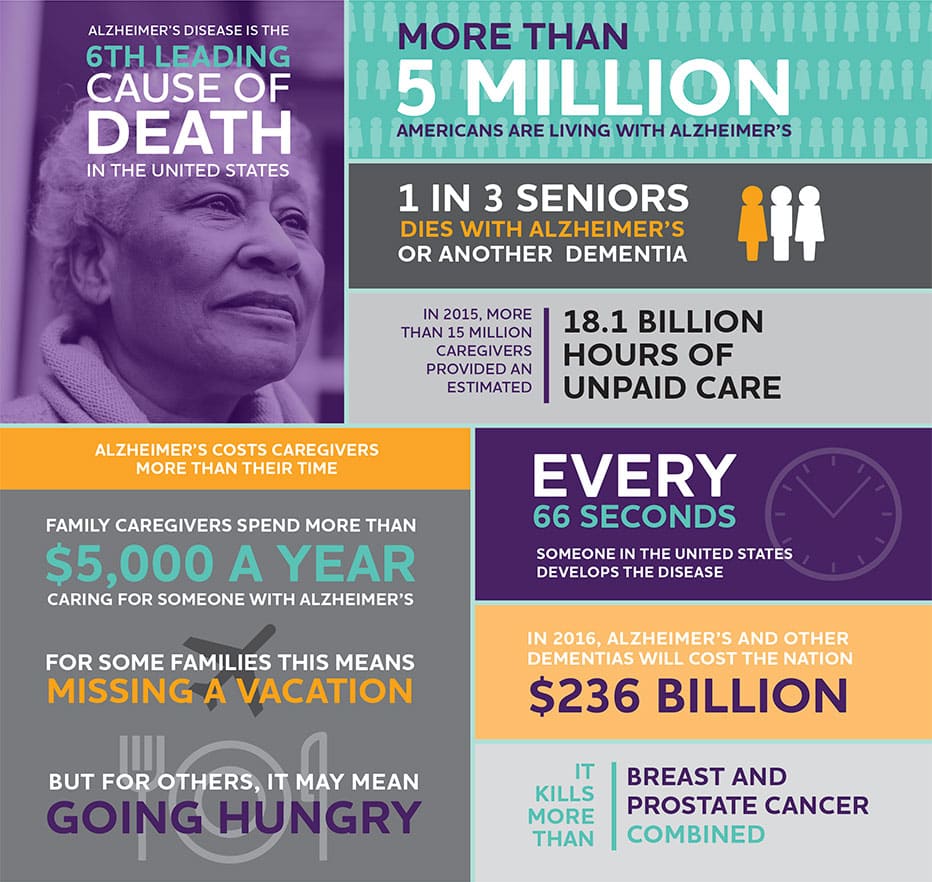Artificial Intelligence For Early Alzheimer’s Detection
Table of contents

A handful of startups are employing artificial intelligence technologies and big data in an attempt to diagnose dementia, particularly Alzheimer’s disease. The effort could lead to better interventions and even therapeutic drugs if it becomes possible to detect cognitive decline before it really starts.
The benefits to society – not to mention market potential – for the early detection of dementia anId Alzheimer’s disease are huge. According to the World Health Organization, there were 47.5 million people worldwide with dementia in 2015, with 7.7 million new cases each year. The total number of people with dementia is projected to reach 75.6 million in 2030 and almost triple by 2050 to 135.5 million. There are nearly 500 open studies on Alzheimer’s disease alone, according to ClinicalTrials.gov.
Some of these technologies that rely on artificial intelligence, if they prove successful and scalable, could also mean the end of expensive screenings. A positron emission tomography (PET) scan, for example, can cost upwards of $3,000. In many cases, such screenings are used to rule out other reasons for dementia, such as a tumor, rather than to provide a definitive diagnosis of Alzheimer’s disease. An MRI has shown some promise in diagnosing Alzheimer’s disease, but it can cost from $3 to $5 million for the machinery and specially designed room.

Here are five companies applying artificial intelligence to diagnose dementia and Alzheimer’s disease.
Neurotrack Technologies
One Silicon Valley startup, Neurotrack Technologies, has a potentially much cheaper and quicker alternative to an MRI or PET scan. In January of this year, Neurotrack raised $6.5 million in new funding, led by Khosla Ventures and supported by Social Capital, Founders Fund, AME Cloud Ventures and iSeed Ventures. That brings the total amount raised to $9.5 million since Neurotrack was founded in 2012. The company has also received $1 million in grants from National Institutes of Health, Johnson & Johnson and the Georgia Research Alliance.
Neurotrack rolled out its trademarked app, Imprint Check-Up, earlier this year. The five-minute, web-based test uses eye-tracking technology to assess recognition memory and hippocampal impairment. The hippocampus plays a role in transferring short-term memory to long-term memory. In Alzheimer’s disease, it is one of the first regions of the brain to suffer damage.
Imprint Check-Up relies on big data analytics, machine learning and computer vision to work its magic, Neurotrack CEO and co-founder Elli Kaplan told TechCrunch. The science behind the test is based on research by another of the company’s co-founders, Stuart Zola, who studies learning and memory in monkeys, according to a feature story on Neurotrack in Scientific American. Zola and his team found that primates will fixate longer on a novel picture versus a familiar one when given two images to study, Scientific American reported. However, those with a damaged hippocampus spend equal time looking at both pictures. A five-year study involving 92 seniors who were administered a half-hour test, based on Zola’s previous research, showed the technology could predict three years in advance who would develop Alzheimer’s.
More than 3,000 people are currently involved in Alzheimer’s studies as well as in pharmaceutical trials to develop treatments for Alzheimer’s disease using Neurotrack’s technology. The institutions include Brown University, Emory University’s Alzheimer’s Disease Research Center, Harvard University, NYU Langone Medical Center, the Shanghai Mental Health Center, and Stanford University. This month Neurotrack announced it would work with San Francisco-based Welkin Health on a six-month clinical study. The project integrates lifestyle coaching for patients who receive an early diagnosis of Alzheimer’s disease to determine the effectiveness of Neurotrack’s technology.
Update 06/11/2019: Neurotrack has raised $21 million Series C funding to develop new partnerships in additional global markets and continue research and development. This brings the company’s total funding to $50.4 million to date.
Winterlight Labs
A spinoff from the University of Toronto, Winterlight Labs uses a different type of artificial intelligence technology, natural language processing, as well as machine learning, to identify the early signs of dementia or Alzheimer’s disease.

In an interview posted on the University of Toronto website, Winterlight Labs co-founder Frank Rudzicz, a scientist and computer science professor at the Toronto Rehabilitation Institute, explained the theory behind Winterlight’s technology:
“Through algorithms that identify things like the grammatical structure of sentences, combined with speech-recognition software, we can analyze a small sample of speech and determine whether there is cognitive impairment. We’ve developed a tablet-based assessment in which people are asked to describe what’s happening in an image, speaking for anywhere from one to five minutes. We then extract over 400 variables from these recordings, quantify the results and determine cognitive status. We can do this based on population-level data, and we’re also looking to do it on a personalized level, analyzing change over time.”
In the laboratory, the software can reliably identify Alzheimer’s disease with 83 percent accuracy. Winterlight estimates that its technology could save pharmaceutical companies $32 million if the company’s artificial intelligence technology was used to screen patients in place of current paper-based approaches, according to Tractica, a market intelligence firm that focuses on human interaction with technology.
At last report, Winterlight researchers were preparing to begin field tests in assisted living and home-care settings, representing 100,000 seniors. The startup has appeared to receive financial support primarily through academic and government sources. In August, it received a $50,000 award from the Ontario Brain Institute as part of its ONtrepreneurs Program, which helps neurotech entrepreneurs take their ideas “from the lab to the marketplace.”
Avalon AI
London-based Avalon AI uses machine learning to analyze brain scans of patients and then predict their likelihood for developing dementia. According to the company’s website, most brain degeneration predictors use only volumetric measurements to predict whether a brain is degenerating, which limits their accuracies. Avalon AI uses structural MRI data as well as diffusion and functional MRI scans to improve the analysis. Combining these three types of scans has been shown to reduce the rate of misdetection of Alzheimer’s Disease by half, compared to using only structural scans, according to the company.
The team said the technology has a success rate of about 75 percent, according to an article in the Huffington Post. Avalon AI has received undisclosed support from Entrepreneur First and Techstars accelerators.
Canary Speech
Like Winterlight Labs, Canary Speech is a brand-new startup that uses machine learning and speech recognition to detect Alzheimer’s and dementia before it starts. Its leadership team includes Jeff Adams, who was part of the company Yap, which pioneered speech recognition software and was acquired by Amazon in 2011 for an undisclosed amount. Adams helped spearhead Amazon’s smart speaker, Echo. He left Amazon in 2014 to found Cobalt Speech & Language, a technology consulting company focused on cognitive computing in speech and language. Canary Speech was born just this year.
Adams told Forbes in a recent interview how the software is designed to work, again echoing (pun sort of intended) Winterlight Labs:
“By examining large amounts of speech recordings from patients with a particular condition, even recording from before they were diagnosed, we use machine learning to identify patterns and markers in the words they use, their phrasing, and the quality of their speech. Our goal is to identify warning signs much earlier so patients can get treatment early enough to make a real difference.”
Aequa Sciences
Finally, there is Aequa Sciences, which is the brainchild of three participants in the Executive MBA program at Cambridge Judge Business School. It combines high-tech and a bit of East-West hippy-ness. The company employs neural networks, another branch of artificial intelligence, to predict Alzheimer’s disease based on the analysis of genetic tests. Aequa is based in London with a laboratory in Brno, Czech Republic.
The company processes DNA samples directly from clients in its lab. Following the analysis, Aequa Sciences will then consult with the client and offer possible treatments based on the results. Suggestions might include lifestyle changes, as well as Chinese medicine and western supplements – all of which can be ordered and delivered directly from the company.
Conclusion
That’s our snapshot in this emerging sector. Some of these are startups are receiving serious attention from researchers, while others seem to have a bit of voodoo in their genetic makeup. One thing is for certain: None of us are getting any younger …
Sign up to our newsletter to get more of our great research delivered straight to your inbox!
Nanalyze Weekly includes useful insights written by our team of underpaid MBAs, research on new disruptive technology stocks flying under the radar, and summaries of our recent research. Always 100% free.

















